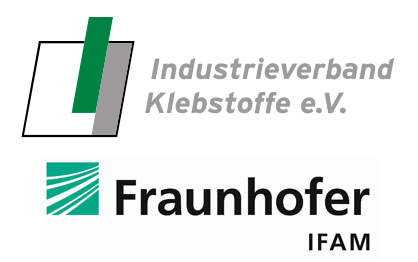4.6.3 Gel-forming adhesives
Gel-forming adhesives: Plastisols
General description:
- Two-phase system: polymer particles (usually PVC) as a solid phase suspended in a viscous plasticiser; Hardening: the plasticiser penetrates into the PVC particles on supplying suitable heat
- After hardening one has a soluble, meltable plastic or plastigel
- Resulting adhesive film: plastified polymer
Physical properties in the as-supplied state:
- Paste-like to firm
Processing:
- Manual, semi-automated or fully automated processing
- For preferred equipment contact the adhesive manufacturer
- Processing temperature: room temperature
- Normal contact pressure
- Adhesive film thickness: 0.2 – 2 mm
- Hardening via the sol-gel process whereby the supply of heat causes the plasticiser to penetrate into the polymer particles; then harden at 160 – 180°C
- Secure in position during the entire oven process
- Special products suitable for bonding oiled metal sheets
- If overheated (e.g. spot welding work): liberation of hydrochloric acid; resulting risk of corrosion which can weaken the adhesive bond; reduction of the joint strength
- Take relevant measures for health and safety at work and environmental protection (General: see Section 7; Details: see safety data sheet)
Typical properties of the hardened adhesives:
- Ratio of polymer to plasticiser 1:1 to 1:4
- Low strength
- Relative high flexibility; medium elongation at fracture
- Temperature for continuous use: up to 120°C
Points to heed:
- The substrates must be acclimatised prior to bonding
- Check the thermal stability of the substrates prior to hardening the adhesive (in an oven)
- Take into account the heating-up time and cooling-down time for the substrates; this time must be added to the curing time for the adhesive
→ Take special care with thick substrates - The heating temperature refers to the temperature in the joint
→ Take special care with thick substrates - Stress can develop in the joint on heating and cooling
If you have questions about the product then see the technical data sheet or contact the adhesive manufacturer.



